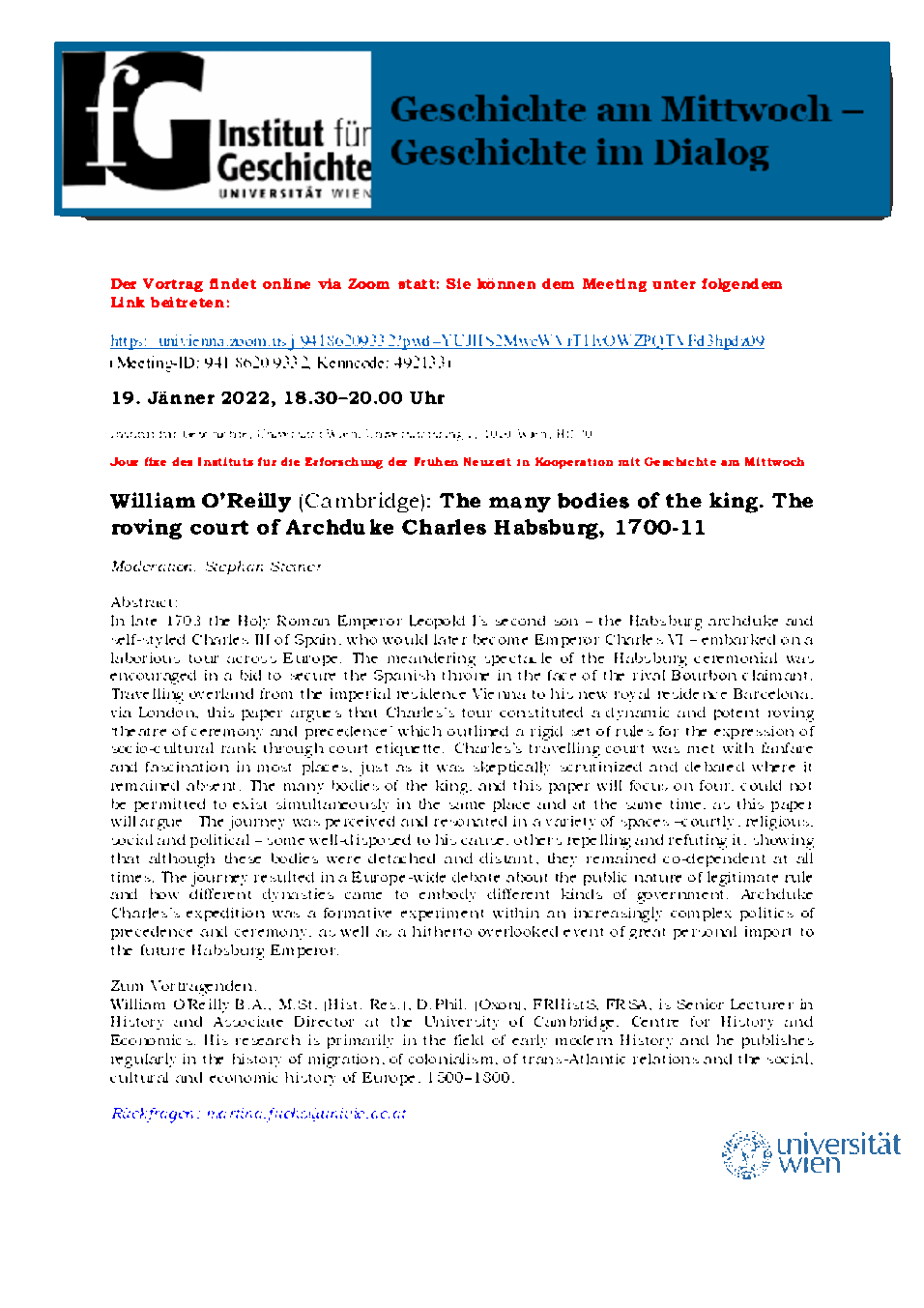Jour fixe des Instituts für die Erforschung der Frühen Neuzeit in Kooperation mit Geschichte am Mittwoch
William O’Reilly (Cambridge): Nostalgia and Hope in Early Modern Migration
Moderation: Stephan Steiner
Abstract:
First coined by Johannes Hofer of Basel in 1678, nostalgia signified the pain which the sick person feels when not in his native land. Cullen in 1772 classified nostalgia as an abnormality of appetite, alongside bulimia and polydipsia. In England it was considered an illness that principally affected foreigners. Recognised among the continental armies of the 18th century as ‘the Swiss disease’, the diagnosis of nostalgia remained a recognised medical condition during the American civil war, but fell from the list of accepted illnesses by 1914.
Historians, literary scholars, and art historians have explored the concept of nostalgia as a tool of historical analysis. More recently, however, it has come to refer principally to a longing for a lost time rather than a longing for a lost place. The relationship between the temporal and spatial dimensions of nostalgia is one that I will particularly explore in my paper, while asking how the concept of nostalgia can help us to re-think conventional understandings of medieval and early modern perceptions of time and historical change, migration and geographical dislocation, and memory and amnesia, and the relationship between nostalgia and hope in the experiences of early modern migrants.
Zum Vortragenden:
William O’Reilly B.A., M.St. (Hist. Res.), D.Phil. (Oxon), FRHistS, FRSA, is Senior Lecturer in History and Associate Director at the University of Cambridge, Centre for History and Economics. His research is primarily in the field of early modern History and he publishes regularly in the history of migration, of colonialism, of trans-Atlantic relations and the social, cultural and economic history of Europe, 1500–1800.

